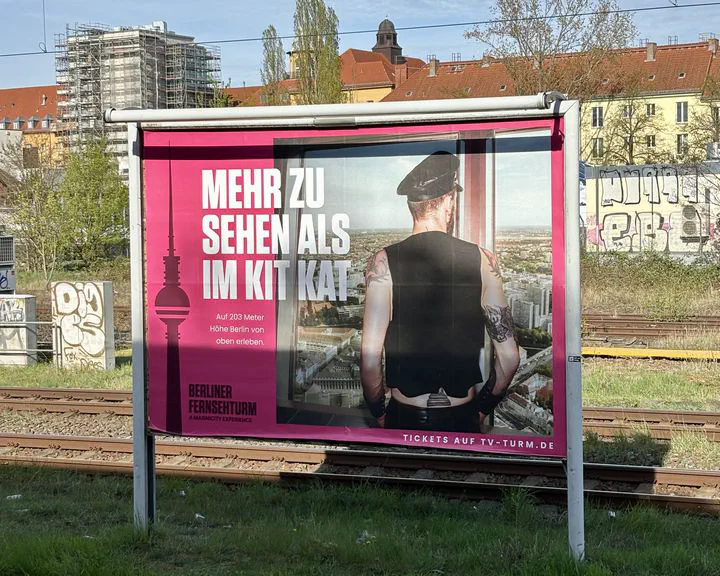Forschungsaufenthalt

The most frequently asked question when I told friends that I would move to Berlin for a while, was whether I would go partying in Berghain or the KitKat Club. That question always annoyed me a bit. As if Berlin had nothing else to offer apart from weekend-long techno raves in fetish attire. As if Berlin doesn’t have a fascinating history that you run into at almost every corner and in almost every street. No, I did not move to Berlin to party. I had planned a six-month “Forschungsaufenthalt” (research stay) in the Psychologische Methodenlehre group from Prof. Dr. Manuel Voelkle at the Humboldt-Universität (HU) zu Berlin. That is fun as well.
For a while, I had wanted to gain experience with doing research at a foreign university. There are many compelling reasons to pursue this as an early-career researcher. It offers you the opportunity to collaborate with internationally renowned experts in your discipline, you can expand your network internationally, and it is generally useful to learn how research and education are organized at other universities and research institutes. And, let’s be frank, the experience of living abroad for a few months, which includes learning how the local public transportation system works, making new friends, getting to know the beautiful and ugly side of a new city, is also just a thrilling experience in and on itself.
When I started as a postdoc with Stress in Action (SiA) I got the opportunity to organize a research visit. I contacted Manuel Voelkle from HU. He is an expert in continuous time-modelling (i.e., a longitudinal data analysis framework) and I knew him from previous conferences and various online discussions we took part in. Not only is his expertise a great complement to my own research for SiA, he is also an incredibly kind person and I was certain that I would enjoy working with him. He told me that spring and summer are the best seasons for visiting Berlin, and he therefore invited me to join his research group starting in March 2024.
On March 4th, Manuel gave a quick tour around the office and Adlershof, which is one of the university’s campuses. I couldn’t help but notice that there was no coffee machine in the office. And no dishwasher. The cups were drying on a rusty electric stove next to the sink. I was introduced to the other colleagues in the department and was assigned a desk and office chair. From that place, I have continued working on my projects for SiA. Every week I tried to integrate a bit more into my new temporary research group and learn from the expertise at the department: I gave a seminar about my own line of research and the SiA consortium; I substituted for a sick colleague by teaching bachelor students statistics 101, which had to be done in German (“Hallo, ich bin Jeroen und jetzt allemaal mond dicht, bitte.”); and joined the secretary in complaining, in my best German, about the broken lift in the building (“Unglaublich!”).
Putting in the effort and getting actively involved in a new group pays off. It makes you better integrated, which in my case gave me new insights into some key differences and similarities regarding the organization of research and education between HU and my home university in the Netherlands. To me, this seems like valuable insight as it prepares you for the case where you have to design or organize a course yourself later in your career. Taking an active role in Manuel’s group also enabled me to expand my research network beyond the HU. I was invited to give a seminar about my work in SiA at the psychology department of Universität Leipzig and the Max Planck Institute for Human Development. I am happy to have met psychological and statistical researchers at these institutes as I believe this has opened the door to potential future collaborations.
One of the highlights of my research visit was that I met Dr. Julien P. Irmer. Julien is a statistician with a mathematical background and works as a postdoc in Manuel Voelkle’s group. We shared quite some similarities, not just career-wise, but also in terms of academic interest. Both of us wanted to study how formal causal inference methodology common in disciplines like biostatistics and epidemiology can be used for causal research in psychology and related fields. We therefore decided to join forces and write a research paper together. He had a strong mathematical foundation that would prove useful for understanding the technical causal inference literature, and I had a broader and more conceptual overview of the different causal inference methods and how they are used. Our backgrounds were, and still are, truly complementary and I have learned a great deal from him. By now, our first collaboration has expanded to three planned papers.
In the end, I stayed in Berlin for almost twice as long as originally planned and I absolutely loved my time there. I also met many new and interesting people, and I am definitely going to be talking about my experiences there for a long time to come. Come to think of it, perhaps a research visit and a visit to the KitKat Club aren’t so different after all…